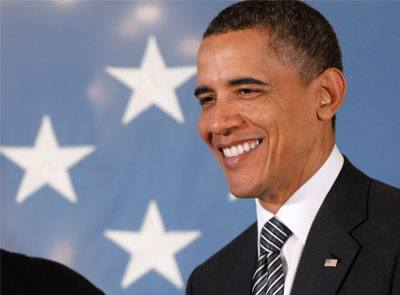
By Tim Middleton
BARACK Obama rose to the position of President of the United States of America on the back of a famous speech in New Hampshire in 2008, a speech that the American rapper will.i.am, the Black Eyed Peas frontman, put to music with over 30 celebrity guest appearances in a special music video.
Obama began the speech with the words, “It was a creed written into the founding documents that declared the destiny of a nation. It was whispered by slaves and abolitionists as they blazed a trail toward freedom. It was sung by immigrants as they struck out from distant shores and pioneers who pushed westward against an unforgiving wilderness.” Can we guess what that creed was? Yes, we can! That is right, it was “Yes, we can!” “Yes, we can to justice and equality. Yes, we can to opportunity and prosperity,” he said. Yes we can, yes we can, yes we can!
Such sentiments echo those captured in the popular slogan, “Success comes in cans, not can’ts”. We know, however, that success does not come in tins or jars but in us saying and believing that we can. As coaches we know only too well how often we will have shared such key thoughts with our own team players: “We can beat this team. We can score more goals than them; we can keep them from scoring. We can outthink and outsmart and outplay them. Come on, guys, we can do this! We can take them!” We know the power of our words. We convinced our team that they could and they did.
Then, let us pause to reflect therefore that if we can do that, then we most certainly can apply those Kipling principles to our own lives and to our own role as coaches. So, yes, we can treat winning and losing in exactly the same way for what they really are; there is no “if” about it! Yes, neither our players or our opponents can upset us in any way; yes, we can watch all our careful preparation and life-long dedication to helping youngsters develop in their sport crash dismally with one catastrophic performance in front of a large baying crowd but still pick ourselves up with weary effort at the next training session and seek to repair all that was lost; yes, we can treat every player, from the strongest to the weakest, the oldest to the youngest, with exactly the same respect, individuality, time and passion; yes, we can make the most of every situation, opportunity and player that comes our way, even when there appears no benefit, fruit or hope. Yes, we can; there is no “if” involved.
The little matter of “if” need no longer come into play. That being so, then we really must ask the important question: if we can (yes, we can — remember), why do we not? Why do we not treat winning and losing in exactly the same way? Why do we not do all the things that Kipling highlights as being what will bring us “success”, when we know we can? Is it pride that whispers in our ear that we have to win in order to be seen to be someone? Is it greed that prompts us to do whatever it takes to win? Is it sloth that renders us unwilling to persist with a losing team but rather look for personal gain? Is it lust for glory that makes us push moral barriers? Is it envy that cuts away at our soul and causes us to blame or disrespect others? Is it wrath that wells up inside us through injustice or poor play and clouds our thinking and behaving? Is it gluttony that pushes us to want more wins, more big wins, more honours? Which of those seven deadly sins prevents us from becoming such a person that will bring true “success” to our children by making them better people? What is stopping us from having humility, charity, diligence, purity, gratitude, patience, temperance?
What was it that Obama, will.i.am, the people wanted — even us? “We want change!” Yes, we do and change was all to be found in the words, “Yes, we can.” We want change in our children’s lives; we want to bring such change through sport, by instilling values, principles, morals (not skills). More importantly, we as coaches can do that by seeing change in our own lives, by becoming better people ourselves; as Mahatma Gandhi said: “If you want to change the world, start with yourself.” Can we do that? Can we change the world through sport? Yes, we can.
We may take Obama’s words and apply them to our coaching and remember that “no matter what obstacles stand in our way, nothing can stand in the way of the power of millions of voices calling for change” in us as coaches, not just believing that children can become better players by becoming better people but also showing in our own life that we can become better people – and thus better coaches. If we cannot, then we will never make it as a coach. There are no “ifs” about it. We can!
- Chamisa under fire over US$120K donation
- Mavhunga puts DeMbare into Chibuku quarterfinals
- Pension funds bet on Cabora Bassa oilfields
- Councils defy govt fire tender directive
Keep Reading
- Tim Middleton is a former international hockey player and headmaster, currently serving as the Executive Director of the Association of Trust Schools Email: [email protected]











